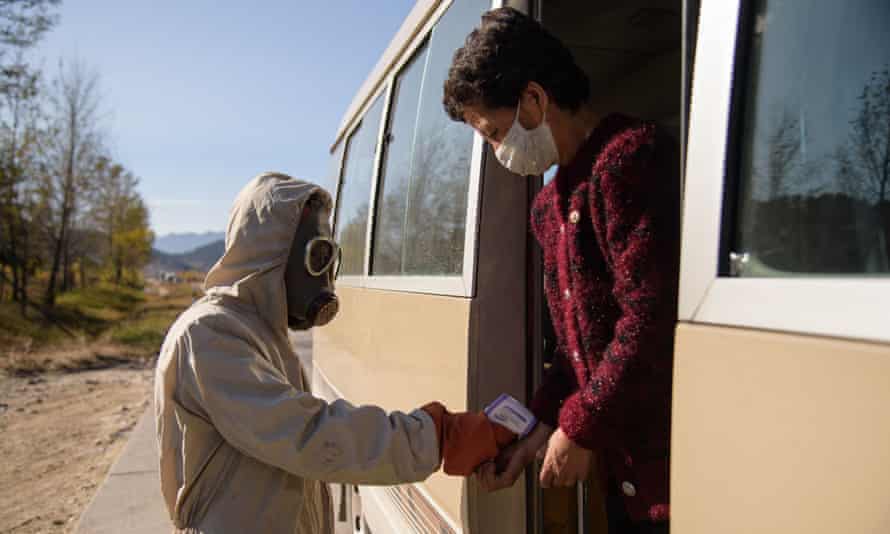
North Korea has announced its first Covid-19 death amid an “explosive” outbreak of fever, state media said on Friday, one day after the regime admitted for the first time that it was tackling a coronavirus outbreak.
The official KCNA news agency said six people had died, adding that one of them had tested positive for the highly transmissible Omicron variant.
It said 187,800 people were being “isolated and treated” after a fever of unidentified origin spread in the country since late April. About 350,000 people had shown signs of fever, including 18,000 who newly reported such symptoms on Tuesday alone, KCNA said, adding that 162,200 of them treated so far. The news agency did not specify how many had tested positive for Covid-19.
Conformation of North Korea’s first Covid-19 death came after the regime said it was imposing “maximum emergency measures” to address an outbreak in the capital, Pyongyang.
Experts believe none – or very few – of the country’s 26 million people have been vaccinated, and there are growing fears that a significant outbreak would quickly overwhelm the country’s poorly equipped health services
North Korea has so far shunned offers of Covid vaccines from China and Russia, and via the World Health Organization’s Covax scheme, apparently because administering the jabs would require outside monitoring.
Zhao Lijian, a Chinese foreign ministry spokesperson, said Beijing had offered North Korea help in dealing with the outbreak. The US has no immediate plans to share Covid-19 vaccines with North Korea, White House press secretary Jen Psaki said on Thursday.
The North Korean leader, Kim Jong-un, ordered a nationwide lockdown on Thursday, calling the outbreak the “gravest national emergency”.
But it wasn’t clear how strictly the measures were being enforced. An Associated Press photographer on the South Korean side of the border reported seeing dozens of people working in fields or walking on footpaths at a North Korean border town – an indication that the lockdown doesn’t require people to stay home or that it exempts farm workers.

On Friday, Kim – who on Thursday had been photographed briefly wearing a mask – visited the state emergency epidemic prevention headquarters and “learned about the nationwide spread of Covid-19”,” KCNA said.
“It is the most important challenge and supreme tasks facing our party to reverse the immediate public health crisis situation at an early date,” it added.
North Korea had insisted it had not recorded a single Covid case since it closed its borders at the start of the pandemic more than two years ago. That move cut off trade with China and inflicted more damage on an economy already battered by natural disaster and UN sanctions imposed in response to its nuclear and missile tests.
Sign up to First Edition, our free daily newsletter – every weekday morning at 7am BST
While some experts said North Korea’s public acknowledgment of Covid cases and deaths could indicate it was seeking outside help, it continued to defy international sanctions with the launch on Friday of what appeared to be three ballistic missiles towards the sea off its east coast.
Leif-Eric Easley, a professor at Ewha University in Seoul, said the regime’s public acknowledgment of coronavirus cases meant “the public health situation must be serious”.
But he added: “This does not mean North Korea is suddenly going to be open to humanitarian assistance and take a more conciliatory line toward Washington and Seoul.”


